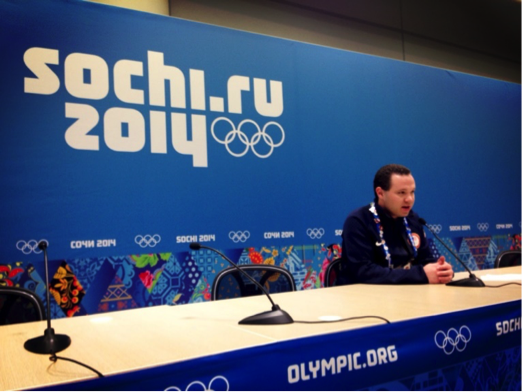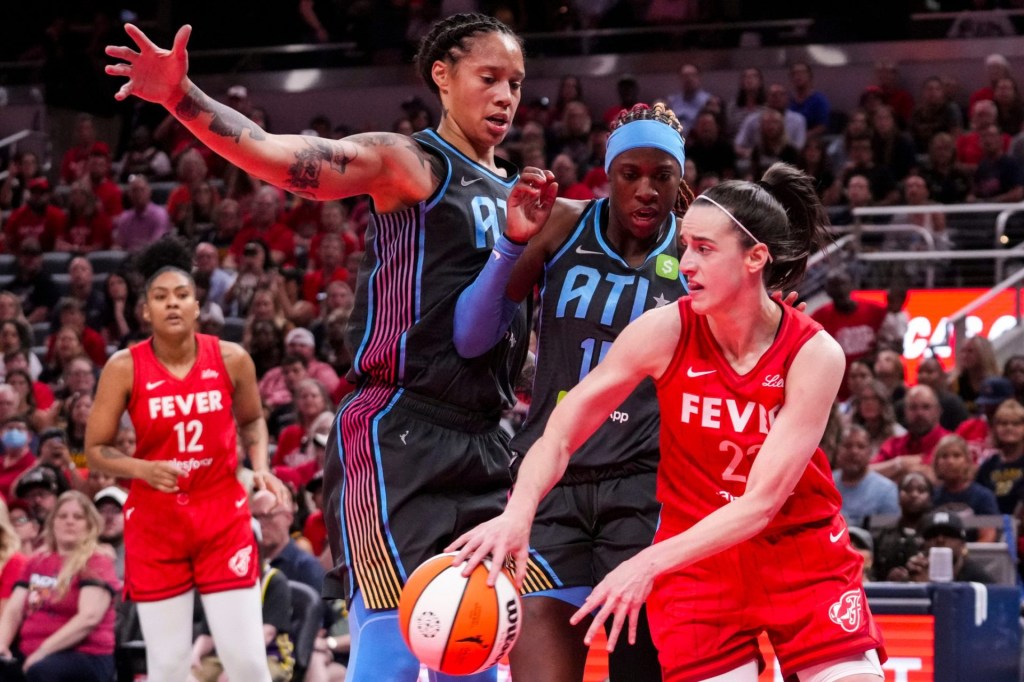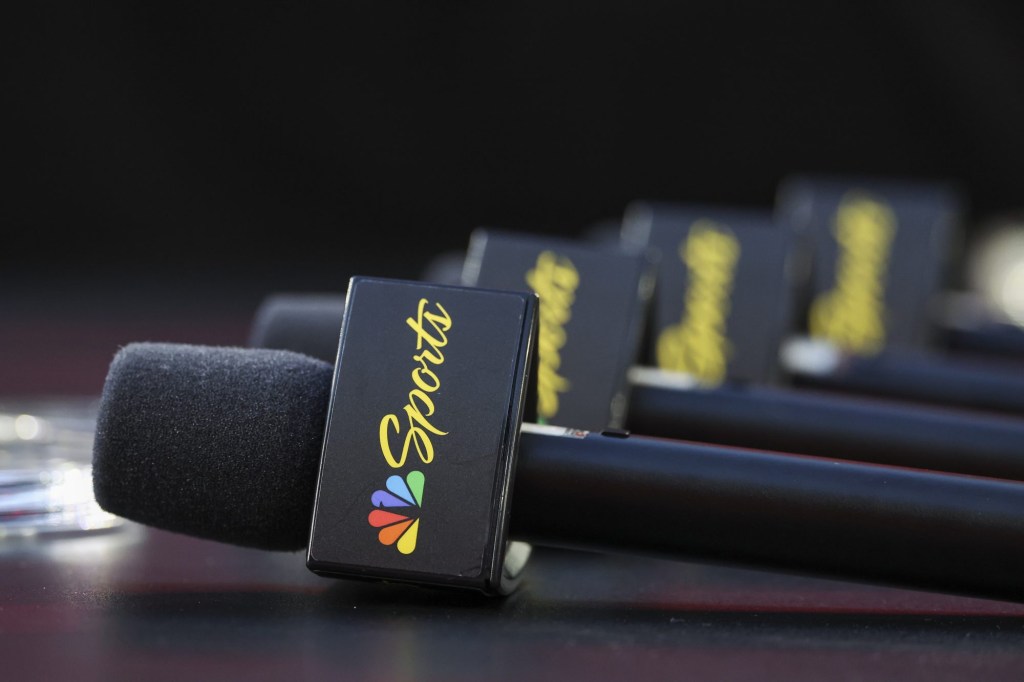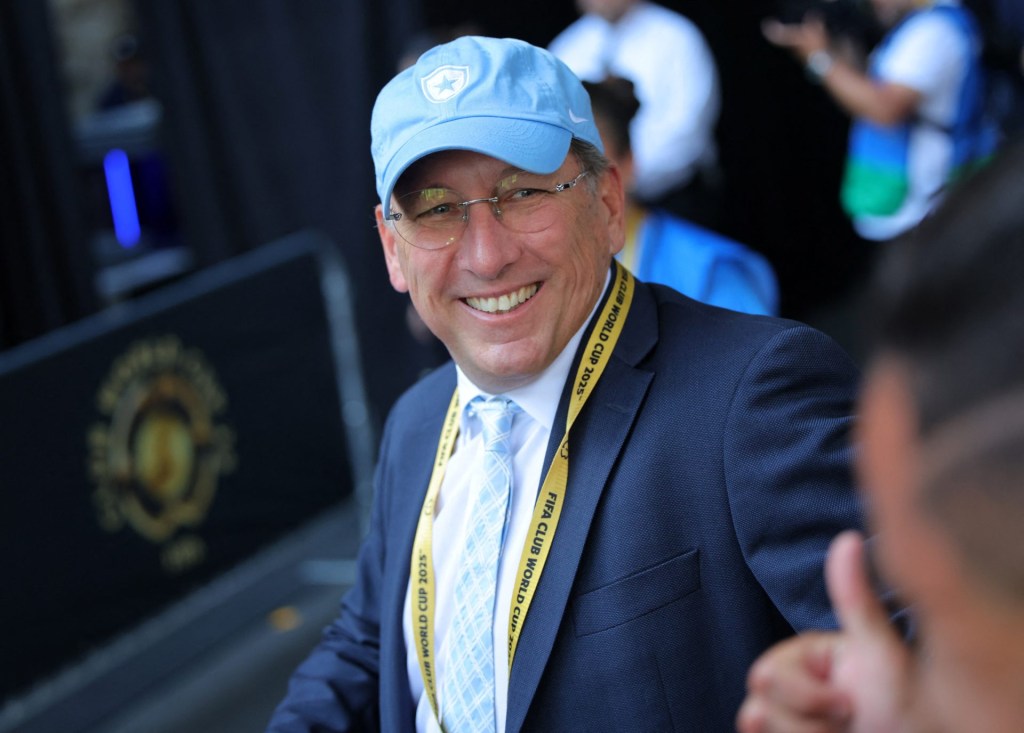By: Amari Dryden, @Amari_Dryden

Front Office Sports is proud to have sat down with Jake Duhaime, Director of Media Relations for the newly developed National Women’s Hockey League (NWHL). Jake has a passion for telling stories that otherwise may not be publicized which is one of the reasons he loves working for the NWHL. He was gracious enough to offer up his wisdom on what it is like to work in a startup culture and why working in professional leagues that aren’t the big four (NFL, NBA, NHL, and MLB) will allow a person to climb the ranks quicker.
What has your journey been like going from being a graduate of Emerson College to now being the Public & Media Relations/Marketing professional for the newly created National Women’s Hockey League?
It has not been a traditional one. My own interest in sports has been evident since I was very young. I have scratched and clawed my way throughout the industry largely going and finding the best opportunities possible in the short term, leveraging my various skill sets whether that be in broadcasting or journalism or media relations. I have been finding one opportunity after the next.
For me, joining the NWHL has been a passion play. I am passionate about Title IX and women’s sports. Sport is more than just about the big four. The best stories exist beneath the surface and they exist when you dig out and find great stories and attach yourself to them. It is harder to attach yourself to a multi-million dollar athlete than it is to attach yourself to a hockey player who is working a part-time job and plays professional hockey on the side. We have 72 great stories in this league which makes it an easy sell from a media standpoint.
Sometimes we get too focused on the MLB, NFL, NBA and NHL. They are dominant but they have created an emotional connection based on the brands of their teams since birth. That is what fuels that industry whereas what we’re doing at the NWHL is creating bonds between players and fans first.
The NWHL is very much a startup culture. We are privately funded through this first season. We have been having discussions with sponsors and potential donors to raise capital and increase the value of the league. We are in search of a television partner and potentially announce some regional television partners for our clubs. It’s been everything from obtaining visas from players to generating coverage for our non-Olympic players because everyone knows who our Olympians are to dealing with logistics because we have four rinks and for each of those rinks we’re purchasing ice time and then selling tickets.
We’re bringing in a crowd that we have to make sure is satisfied and entertained for two and a half to three and a half hours every Sunday. It’s been a lot of learning and dealing with things on the fly but as a startup, there is no traditional set way or days and we’re going with the flow as best as possible.
What inspired you to work in the sport industry?
Once I realized an athletic career was not going to happen, I had to find an alternative way to get into sports and for me that was media. Growing up in Boston, I grew up in a city that is obsessed with sports but also with sports media. In the greater Boston area, some of those journalists are celebrities in their own right. I was in a market that was saturated with sports media. I got my degree from Emerson in broadcast journalism. My senior year, I worked on a World Series, a Super Bowl, an NBA final and also covered the NHL. By the time I graduated, I was entrenched in all four major professional sports. That was a great opportunity to get my foot in the door and to get to know some of the people I grew up reading and watching on TV. From there, you’re back at the bottom once you graduate. Part of that journey has been leveraging those contacts and understanding who can help you and in what capacity.
What is your favorite aspect of your job?
The great part about working for a startup league is that our players are so appreciative of the support they get and that is something you don’t see with most professional leagues. Our players are so grateful for what we’re doing for them; not only offering them a league to play in but a league that understands their value as professional athletes for the first time. In turn, promoting and publicizing that league. We had two major national video shoots. One of the women, Celeste Brown, was in both of the shoots and after each shoot she came up to me and said, “Thank you so much for everything you’re doing. It means a lot.” Not a lot of people had heard of Celeste Brown before this league came about and before some of the publicity that is being generated got out there. It’s meaningful and impactful and that’s what’s made it so rewarding to be a part of this process.
What are some of the challenges that come with marketing a new professional league?
It’s very simple. It’s how you make the economics work. We are privately backed for this first season. Our job this season is to show a sustainable business model for this league. It can happen in a number of different ways. If we sell sixty thousand tickets, we will have sold out all of our buildings and have made a profit that way based on our margins. If we were to loop in corporate sponsors, there are opportunities to raise capital and revenue that way. If we go out and raise an investor round very similar to tech companies, it’s first of all learning and understanding that process and how we are communicating the value of our league to those who could potentially give the league money to continue to float and grow on a day-to-day basis. That’s the biggest challenge right now; how do we create a league that is sustainable from a revenue standpoint? There are a bunch of different pathways to success which is the exciting part.
What qualities does a person need to take on a job where you’re a part of a startup such as the NWHL?
You need to be able to wear many hats. There are no two days that are similar in a startup. There is no line of expertise that is preferred. One day you could be needed to write a press release and the next to build an email and the next day handling crisis communication with media members who need to know the answer to a question they needed answered yesterday. You need to be flexible and adaptable.
Having many areas of knowledge and skill is very helpful. As you continue to work throughout the sports world the higher up you get, the more specific the positions become. Do you want to be really good at one thing and silo yourself into one position or have many different skills in which case you have to find an occupation that works with that kind of mindset?
You’ve written about numerous professional leagues. What has been one of the most interesting stories you’ve written?
Writing about the Paralympic Games is extremely impactful. Looking at where sport has been and where it’s going. I have worked with the Boston Marathon first as an intern and then as a volunteer. The Boston Marathon wheelchair race seems to get bigger and bigger every year.
Part of what that is is that you’ve had major advancements in both medicine and technology which allows people who are impacted by disabilities to not only be resourceful and learn to walk and maneuver and live their lives with more accessibility that they’ve ever had, but they also want to compete. Someone like Tatyana McFadden who in my opinion is one of the world’s most dominant female athletes right now who has won every single marathon in the books, there might not have been a place for her twenty-five years ago.
Being able to cover that story and be at the forefront of innovation and sport is unique. Now you’re starting to see brands understand the value and capabilities of these Paralympic athletes.
What did you do starting out in your career that you know has helped you get to where you are today?
The best thing was getting involved in sports that usually don’t generate serious revenue. For instance, everyone has this aspiration of wanting to work in the NFL or the NBA. You’re competing in a very competitive industry where that is the ultimate goal. How do you work around that and break into sports and build your resume up knowing you’re either going to be a big fish in a small pond or a very small fish in a very big pond?
Doing things like working the Boston Marathon, at a ski resort or covering college hockey or assisting with women’s soccer. Those were all incredible experiences where I was probably able to accelerate my career at a faster pace because I wasn’t sitting there waiting for my turn which is often the case when you intern or work for a professional sports team. Finding your opportunity, grabbing it and not waiting for your number to be called. The field is too competitive to be sitting on the sidelines waiting for your turn.
Parting wisdom?
You can’t sit on the sidelines waiting for your turn. If you’re out of ideas, waiting for someone to throw you a life raft, you’re probably not fit for the sport industry. Everyone who works in this field is extremely creative, they work extremely hard, they have vast amounts of hustle and they will do whatever it takes to get things done. When you’re starting off, you don’t understand that as well as if you’ve been in the field for ten years but the two most obvious things that happen for those that work in sports in a sacrificial standpoint is that you have people who will move anywhere for a sports job and you have people who will take significantly less than their own market value to be in the field.
It’s very tough to sit on the sidelines knowing that other people will do those two things to get ahead. You have to be selfless in that regard, flexible and it helps to have a little financial maneuverability. You’re competing against people who would do anything to get in the industry and stay in the industry and by that very nature you have to be willing to play on par and compete with those kind of people. If you’re sitting on the sidelines waiting for something to happen, odds are its not.
We would like to thank Jake for his time and insight and we wish him the best in all his future endeavors!
You can connect with him on LinkedIn here!

















